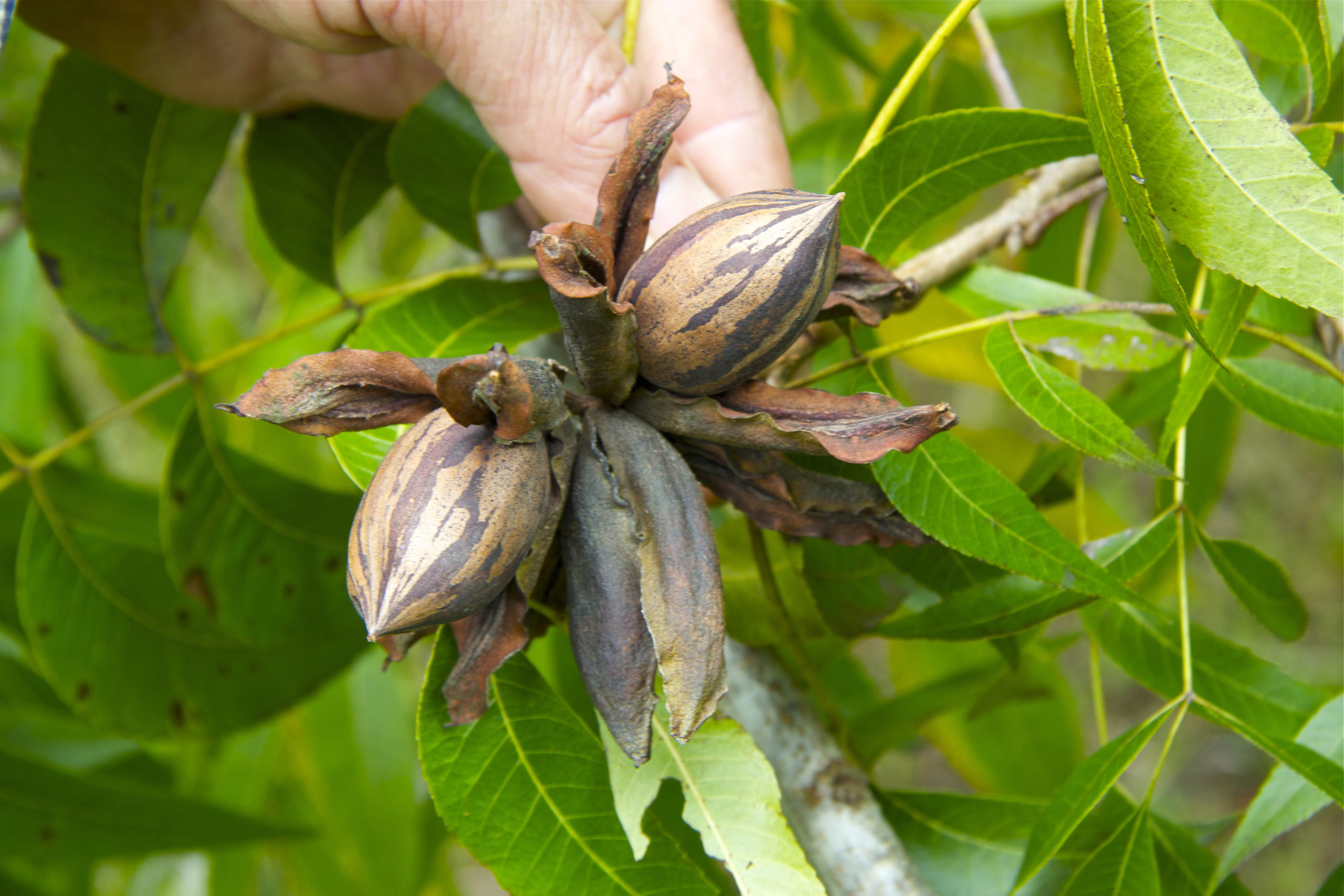By Libby Rens, PhD
Summary
Pecan is one of the few crops originating from the US and is native to the Mississippi
River Valley (NMSU). While pecan is typically considered a Georgia crop, New Mexico has almost
four times the production on about one-third of the land, making it the most productive pecan
state. Texas, Arizona, and Oklahoma also have a significant amount of pecan acres (USDA).
These states have characteristics in common ideal for pecan production, including
deep, well-drained, sandy soils. Pecans thrive in these soils as they are susceptible to water
stress, salt stress, waterlogging, poor aeration, and hard soil (NMSU).
These soil features are great for root growth, but also promote rapid leaching of plant
nutrients which need to be supplied to promote tree growth and yield. Intrepid Trio® is
recommended as part of a custom blend to supply potassium, magnesium, and sulfur as part
of a well-balanced nutrient program.
Pecan Nutrient Management
The advantage of Trio® for pecan orchards is the addition of magnesium and sulfur to a
potassium fertilizer. Pecans are often grown on sandy soils prone to leaching of soil nutrients.
High production areas like New Mexico have pockets of soil magnesium deficiency,
which is exacerbated by excessive soil calcium or potassium, creating cation adsorption
competition in the soil and cation uptake competition in the root (NMSU). New Mexico soil
characterized by high calcium, which reduces the magnesium holding capacity of the soil and
can compete with magnesium for plant uptake.
Nutrient Deficiency in Pecan Orchards

Magnesium deficiency displays in a distinctive ‘Christmas Tree’ pattern of chlorosis on
the foliage in extreme cases (above). These symptoms typically emerge mid to late summer
(UGA). When deficiency symptoms occur, it is valuable to apply an immediately available
soluble form of magnesium like Intrepid Trio®.

Potassium is a commonly seen deficiency in pecan orchards and can vary across cultivars (UGA). Nitrogen leaf scorch can occur when high nitrogen applications cause an imbalance in the N:K ratio. This can be avoided by applying potassium fertilizer along with nitrogen applications. The recommended application in Georgia is 50-100 lbs. of potassium per acre applied in February or March. Soil samples can help fine-tune rate decisions.
Preliminary studies out of Georgia show increased photosynthetic productivity when pecan is supplied with sulfur. NMSU generally recommends 20-30 lbs./ac of sulfur per acre for most crops (NMSU). Very few studies have been done on magnesium and sulfur on NM Pecans.
The recommended mechanisms for identifying the need for potassium, magnesium, and sulfur in pecan orchards are soil and leaf tissue tests taken in early August (NMSU). Soil tests are informative but represent just a snapshot of what is available at that moment. A tissue test will reveal what has been taken up by the crop over the season.
![]()

Intrepid Trio®
Intrepid Trio® is 100% natural langbeinite, a unique mineral with three essential nutrients in every granule providing a long-lasting, readily available source of low-chloride potassium (22% K2O), 11% magnesium and 22% sulfur at a ratio ideal for pecan grown in sandy, high calcium, low CEC soils. Intrepid Trio® is also available in OMRI listed grades approved for organic farming.

